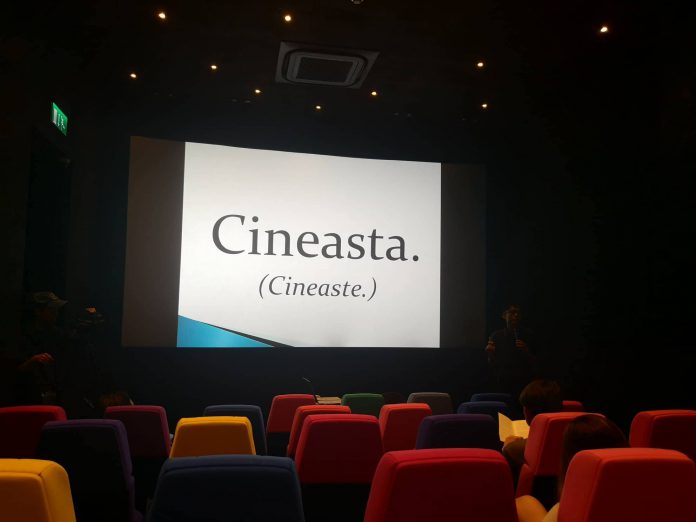Macau (MNA) – Its past “colourful” colonial past gives Macau filmmakers an “edge” that is absent to Hong Kong cinema, and local filmmakers should delve more into the city’s history for movie ideas, Hong Kong film critic and programmer Clarence Tsui told Macau News Agency (MNA).
“Macau has such a long and colourful history stretching back to the 15th century, just in terms of colonial rule. Just that period alone in which modern Macau was born there were so many stories to be told and so many different perspectives to look to the Past in order to understand the Present and confront the Future,” the film critic said.
Mr. Tsui was the responsible for the movie curation for Portuguese language movies for the ongoing China and Portuguese-speaking countries film festival and held a seminar on Portuguese cinema today at Cinematheque Passion.
However The Hollywood Reporter contributor also considered that local independent filmmakers, just like their Portuguese counterparts, share the same difficulties achieving financial independence, with the Macau government having a crucial government in supporting the local film industry.
During its presentation he showcased data on the Portuguese film industry, with the highest Portuguese grossing movie in 2017 – Bad Investigate – having a box office of 241,813 euros (MOP2.2 million/US$284,243), paling in comparison to the more than 2.3 million euros generated by Hollywood production Fifty Shades Freed.
“In a lot of countries Hollywood films dominate and there are similarities between Macau and Portuguese cinema and filmgoing habits[…] I think the support from the government would be crucial to the establishment of the enhancement of the filmmaking scene in Macau,’ he said.
For Mr. Tsui this support could pass by creating a local film institute, with Portugal and other Portuguese-speaking countries having founded national film institutes that can help local filmmakers “get their voice heard” and allow directors, screenwriters and cinematographers to “establish their own narrative”.
“I hope local authorities can give [Macau filmmakers] the space and the support to tell all these stories from different eras and perspectives so that people can have a more full fleshed understanding of their own lives and identity,” he added.
With the alternative possibly being to cooperate more with Hong Kong or Chinese production companies, with the risk of losing some of the local perspective for their projects, Mr.Tsui mentioned the case of local director Tracy Choi.
The local filmmaker has previously commented that she “had to brave out” a lot of interferences to the original vision she had for her Macau-Hong Kong production Sisterhood, which won the Audience Choice Award at the first Macau International Film Festival in 2016.
“There’s always an opportunity [for collaborations] but depends on the artists own persistence and the support of financiers, producers and officials in charge of helping to nurture culture, and of course the local audience itself and how they support their own,” the film expert added.
The China and Portuguese-speaking countries film festival will last until July 13 and is part of the ‘Encounter in Macau – Arts and Culture Festival between China and Portuguese-speaking countries’ which opened last week.




















